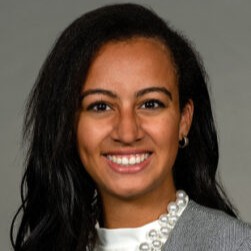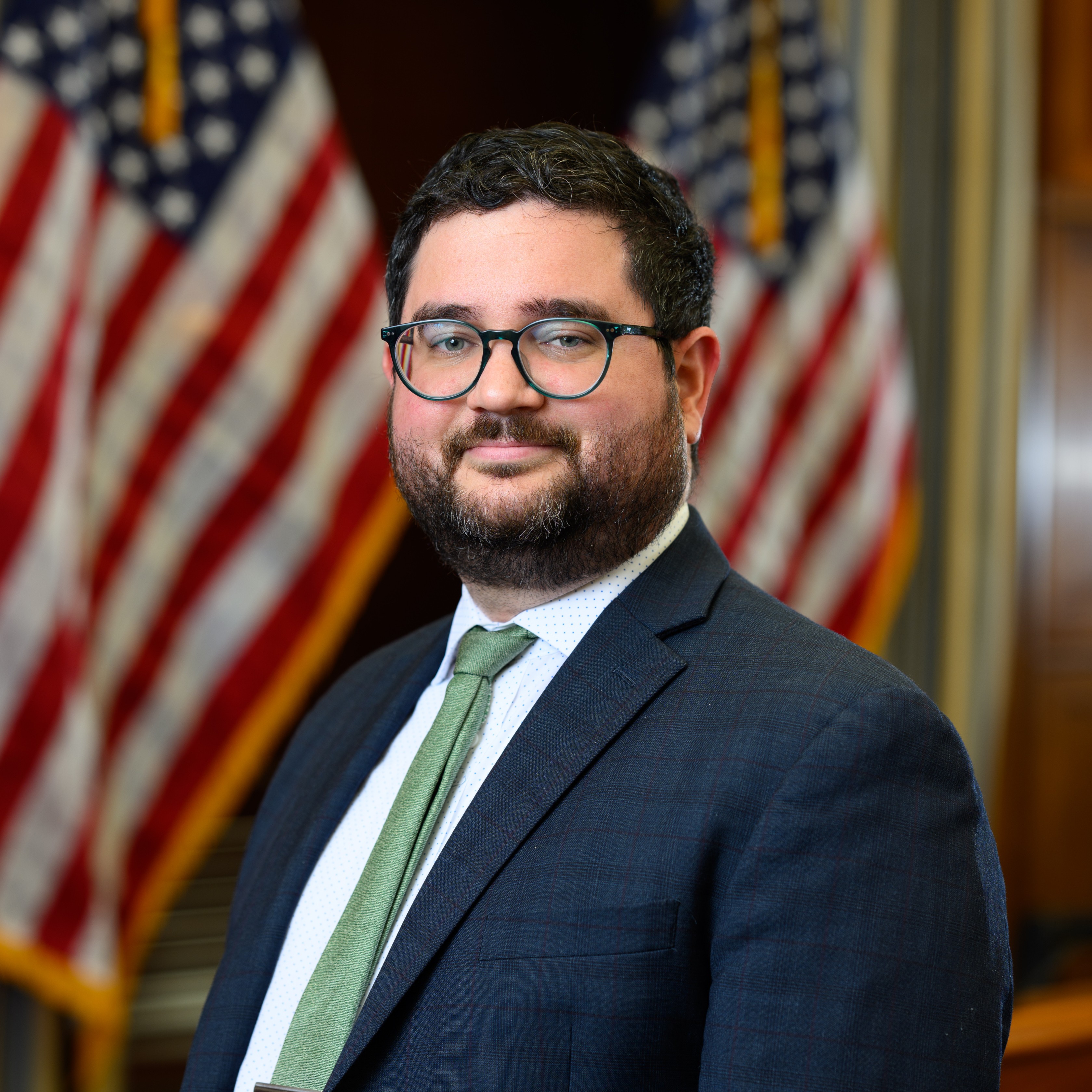Conference Schedule
Note that the following schedule is subject to change. An offline version of the program may be downloaded here.
Program Overview
| 8:00am - 8:45am | Check-in & Coffee |
| 8:45am - 9:00am | Welcome and Opening Remarks |
| 9:00am - 10:00am | Opening Panel: Data Privacy and the Public Interest: Where Policy Meets Practice |
| 10:00am - 10:15am | Coffee & Tea Break |
| 10:15am - 12:00pm | Session 1: New Methods for Differentially Private Estimation and Learning |
| 12:00pm - 1:30pm | Lunch and PET Discussion |
| 1:30pm - 3:15pm | Session 2: Rethinking Privacy: Concepts, Metrics, and Use Cases |
| 3:15pm - 3:30pm | Coffee & Tea Break |
| 3:30pm - 5:00pm | Lightning Talks and Poster Session |
| 5:00pm - 5:15pm | Poster Awards & Day 1 Wrap-Up |
| 5:15pm - 7:00pm | Networking Reception |
| 8:00am - 9:00am | Check-in & Coffee |
| 9:00am - 10:00am | Policy Panel: Translating Privacy Technology into Privacy Law: How Privacy Researchers and Practitioners Can Support Policymakers |
| 10:00am - 10:15am | Coffee & Tea Break |
| 10:15am - 11:45am | Session 3: Regulatory Realities of Privacy and Data Protection |
| 11:45am - 1:00pm | Lunch and PET Discussion |
| 1:00pm - 2:45pm | Session 4: From PETs to Practice: Infrastructure and Applications |
| 2:45pm - 3:00pm | Conference Wrap-Up |
Full Program
Day 1: Mon. Feb. 9, 2026
| 8:00am - 8:45am | Check-in & Coffee | |
| 8:45am - 9:00am | Welcome and Opening Remarks | |
| 9:00am - 10:00am | Opening Panel: “Data Privacy and the Public Interest: Where Policy Meets Practice” Moderator: Sharon Gibbons, Co-founder, Augusta Griffin Panelists (bios are found at the end of the program):
|
|
| 10:00am - 10:15am | Coffee & Tea Break | |
| 10:15am - 12:00pm | Session 1: New Methods for Differentially Private Estimation and Learning
|
|
| 12:00pm - 1:30pm | Lunch and Privacy Enhancing Technology Discussion | |
| 1:30pm - 3:15pm | Session 2: Rethinking Privacy: Concepts, Metrics, and Use Cases
|
|
| 3:15pm - 3:30pm | Coffee & Tea Break | |
| 3:30pm - 5:00pm | Lightning Talks and Posters
|
|
| 5:00pm - 5:15pm | Announce Poster Winners & Wrap Day | |
| 5:15pm - 7:00pm | Networking Reception Sponsored by the ASA Privacy & Confidentiality Interest Group |
Day 2: Tues. Feb. 10, 2026
| 8:00am - 9:00am | Check-in & Coffee | |
| 9:00am - 10:00am | Policy Panel: “Translating Privacy Technology into Privacy Law: How Privacy Researchers and Practitioners Can Support Policymakers” Moderator: Tatiana Rice, Senior Director for U.S. Legislation, Future of Privacy Forum Panelists (bios are found at the end of the program):
|
|
| 10:00am - 10:15am | Coffee & Tea Break | |
| 10:15am - 11:45am | Session 3: Regulatory Realities of Privacy and Data Protection
|
|
| 11:45am - 1:00pm | Lunch and Privacy Enhancing Technology Discussion | |
| 1:00pm - 2:45pm | Session 4: From PETs to Practice: Infrastructure and Applications
|
|
| 2:45pm - 3:00pm | Conference Wrap Up |
Panelist Information
Opening Panel Participants

Sharon Gibbons
With over two decades of experience navigating the intersection of technology and collaboration, Sharon Gibbons is an expert in end-to-end privacy policy and deployment. As co-founder of Augusta Griffin, she creates novel solutions for sensitive data domains by uniting global providers and specialist teams. Her leadership experience includes a transformative five-year tenure at Meta, where she revolutionized academic partnerships and scaled research operations, and a decade at Technicolor leading marketing innovation strategy. Most recently, Sharon served as Director of Community Engagement for the OpenDP project, driving worldwide participation in open-source privacy tools.

Yaw Etse
Yaw Etse is the Vice President of Data Engineering at Capital One, where he leads the Data Governance organization in Enterprise Data focusing on data anonymization, scalability, and operational efficiency. His role at Capital One involves driving innovative solutions and helping the company stay ahead in the competitive financial sector, especially through his involvement in projects on synthetic data and differential privacy. Yaw is actively collaborating with our Applied Researchers and academic engagement partners with Harvard on OpenDP and MIT on the Future of Data, to leverage research and advancements in secure data processing and privacy enhancing technologies here at Capital One.
Joseph Calandrino
Joseph Calandrino is an assistant professor at Carnegie Mellon University affiliated with the Department of Engineering and Public Policy, the School of Computer Science, and the CyLab Security and Privacy Institute. His research falls at the intersection of computer science with public policy. He previously served as acting chief science and technology advisor and acting chief AI officer at the U.S. Department of Justice and, for more than eight years, as research director in the Federal Trade Commission’s Bureau of Consumer Protection. He received his doctorate in Computer Science from Princeton University and a BS in Computer Science and Mathematics from the University of Virginia.

Naomi Lefkovitz
Naomi Lefkovitz is the Owner of Strategai Consulting, LLC whose mission is to help organizations responsibly increase the value of their data by addressing AI governance challenges and cybersecurity and privacy risks arising from data processing. Previously, Naomi Lefkovitz was the Senior Privacy Policy Advisor and Manager for the Cybersecurity and Privacy Applications Group in the Information Technology Lab at NIST. She established the Privacy Engineering Program to advance the adoption of privacy-enhancing technologies and develop privacy risk management processes for information technologies. In addition, she led the development of the NIST Privacy Framework.
Policy Panel Participants

Tatiana Rice
Tatiana Rice is the Senior Director of Legislation and Regulation at the Future of Privacy Forum. She helps lawmakers, industry leaders, and civil society navigate the evolving landscape of data privacy, AI, and emerging technology regulation and policy. She leads FPF’s strategic legislative and regulatory engagement at the state and federal levels, providing expert analysis, research, and guidance to support informed decision-making on AI policy and governance. Prior to joining FPF, Tatiana was at Shook, Hardy, & Bacon LLP, where she led biometric compliance efforts and supported industry clients in managing data privacy compliance, litigation, and investigations.

Alan McQuinn
Alan McQuinn is a Professional Staff Member for the Research & Technology Subcommittee of the House Committee on Science, Space, and Technology. He advises Committee Members on a variety of issues related to information communications technology, such as cybersecurity, privacy, artificial intelligence, advanced manufacturing, and quantum information science. Alan McQuinn was previously a senior policy analyst at the Information Technology and Innovation Foundation. McQuinn has a Master’s in Public Policy from the McCourt School at Georgetown University and a B.S. from the University of Texas at Austin.

Dylan Irlbeck
Dylan Irlbeck is a technologist focused on making government work better. Dylan currently serves as Legislative Assistant for Congresswoman Lori Trahan (MA-03), a senior Democrat on the House Energy & Commerce Committee, covering technology, consumer protection, and college sports issues. Dylan was previously a TechCongress fellow, serving with the Senate Finance and House Oversight Committees where he worked on policy related to government modernization, artificial intelligence, and antitrust. Earlier in his career, Dylan served as a Coding it Forward Fellow, developing public interest technology for the federal government.